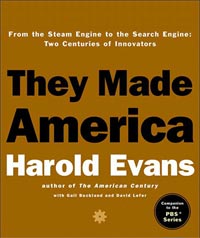Famine in Niger is no surprise — desert wastes, locusts and decades of Marxist rule keep it second-to-last on the world poverty list. Famine in the fertile climes of southern and eastern Africa, however, seems more shocking. But there’s a common thread: centralized state rule — incompetent at best — marked by corruption and sustained by aid. These are the shackles that keep Africans poor: It would be nice if EU and U.S. trade barriers were removed at trade talks in Hong Kong this week, but exports are a distant notion to the 75% of Africans who live off the land.
Niger is little-blessed by nature, but it has also spent its postcolonial era trying various forms of failed government, with Marxism reigning longest. A quarter of the population — 2.5 million people — faces starvation. Yet more temperate southern and eastern African countries are on the edge of famine, too, with 10 million affected in southern Africa alone. Again, we find the same economic profile: Zimbabwe, Malawi, Zambia, Mozambique, Swaziland and Lesotho all lack economic freedom and property rights; all have economies mismanaged by the state; all depend on aid. All these countries have a history of utopian schemes that failed to produce everlasting manna. State farms, marketing boards, land redistribution, price controls and huge regional tariffs left few incentives or opportunities for subsistence farmers to expand. Despite torrents of aid, these cruel social experiments could not turn sands verdant or prevent the granaries of southern and eastern Africa from rotting.
Ethiopia’s Prime Minister Meles Zenawi believes that allowing Ethiopians to own their land would make them sell out to multinationals. He seems to have overlooked a basic market principle: It demands a willing seller and a willing buyer at an agreed price. If that price is worth selling for, the farmer might have some money to reinvest elsewhere; if that price is worth buying for, the purchaser must have plans to make the land profitable. If there is no sale, owners might have an incentive to invest in their own land and future, having, at last, the collateral of the land on which to get a loan. After decades of socialism, Ethiopia’s agricultural sector — the mainstay of the economy — is less productive per capita than 20 years ago when Band Aid tried to defeat famine. Although 60% of the country is arable, only 10% has been cultivated. Ethiopia is entirely dependent on donations; but instead of grasping reality, Mr. Zenawi, a member of Tony Blair’s “Commission for Africa,” is forcing resettlement on 2.2 million people.
In Zimbabwe, the murderous kleptocrats of Robert Mugabe’s regime deny that land seizure has pushed their rich and fertile country into famine: Some three million people face starvation today.
. . .
African leaders must be pushed to reduce economic intervention, free financial markets, remove bureaucratic obstacles to setting up businesses, establish property rights and enforce contract law. These are the forces that release entrepreneurial energy. But the ruling cliques will do none of these unless forced to do so as a condition of aid. The Sachs aid model has financed tyranny and corruption for 40 years, leaving Africans destitute. The world trade meeting in Hong Kong will hear cries for “Trade Justice” for Africa, representing more protectionism and more state-run, aid-fueled schemes. What we really need is economic freedom and the rule of law at home: We are perfectly capable of improving our own lot if only allowed to do so.
For the full commentary, see:
FRANKLIN CUDJOE. “The Terms of Trade: Africa Needs Freer Markets — and Fewer Tyrants.” The Wall Street Journal (Weds., December 14, 2005): A20.
(Note: ellipses added.)
(Note: The WSJ identifies Mr. Cudjoe as “director of Imani, a policy think tank in Ghana.”)



 Source of book image: http://www.mikemilken.com/fincareer.taf?page=they_made_america
Source of book image: http://www.mikemilken.com/fincareer.taf?page=they_made_america 